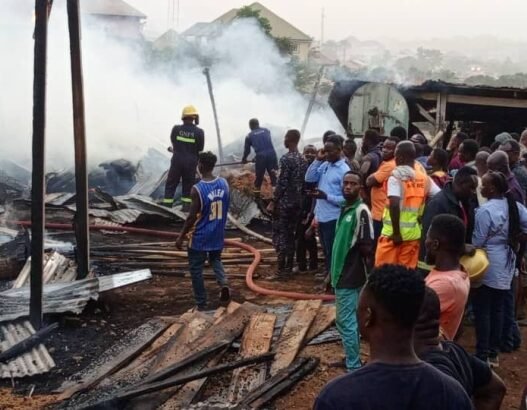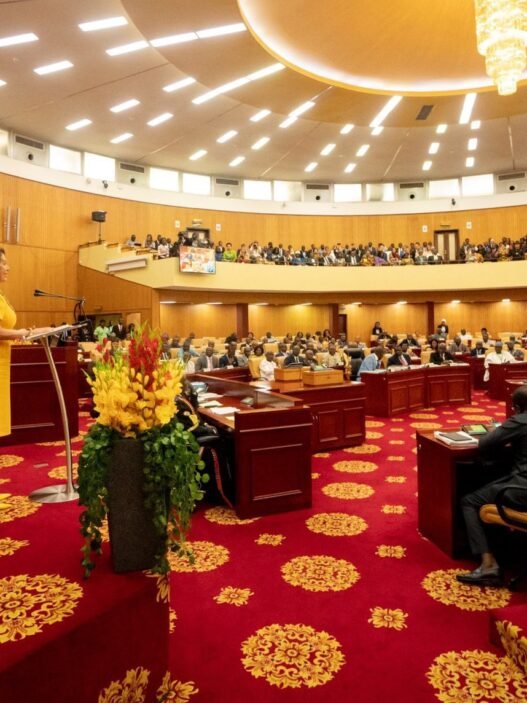The Gbese Stool, under the leadership of Paramount Chief Nii Ayi Bonte II, has issued a stern warning against the construction of wooden structures on the Katamanto lands, asserting that the property is not government-owned.
The statement comes amidst reports of unauthorized developments on the land following recent fire outbreaks in the area. The Gbese Stool has made it clear that such actions will not be tolerated, emphasizing the historical and legal ownership of the land by the Stool.
Ownership Clarified
In a statement released by the Gbese Traditional Council, Nii Ayi Bonte II reaffirmed the Stool’s rights over the Katamanto lands, dispelling claims that the property is state-owned.
“Katamanto lands are part of the Gbese Stool’s ancestral properties, and any unauthorized construction or occupation is a violation of our rights,” the statement noted.
Warning to Developers
The Stool warned individuals and groups against erecting wooden or temporary structures, adding that all developments must receive formal approval from the Traditional Council.
“Anyone found flouting these directives will face legal action or other measures deemed necessary to protect the Stool’s property,” Nii Ayi Bonte II stated.
Context of the Warning
The warning follows recent incidents, including:
- Fire Outbreaks: Recurrent fires at Katamanto Market, which have displaced traders and created a surge in unauthorized developments.
- Disputes Over Ownership: Confusion over whether the land belongs to the government, private entities, or the Gbese Stool.
- Development Pressure: Attempts by individuals and groups to take advantage of the situation for personal gain.
Call for Dialogue
The Gbese Stool urged traders, developers, and relevant authorities to engage in constructive dialogue to ensure proper use of the land. The Traditional Council also indicated its willingness to work with stakeholders to find long-term solutions that benefit the community and uphold the Stool’s rights.
Legal Implications
The Gbese Stool’s warning serves as a reminder of the importance of respecting traditional land rights in Ghana. Unauthorized construction not only violates customary laws but could lead to legal battles and disruptions for traders and residents in the area.
Way Forward
The Gbese Stool reiterated its commitment to safeguarding its properties while ensuring that Katamanto remains a thriving hub for commerce and trade. However, this must be done in compliance with legal and traditional protocols.





















